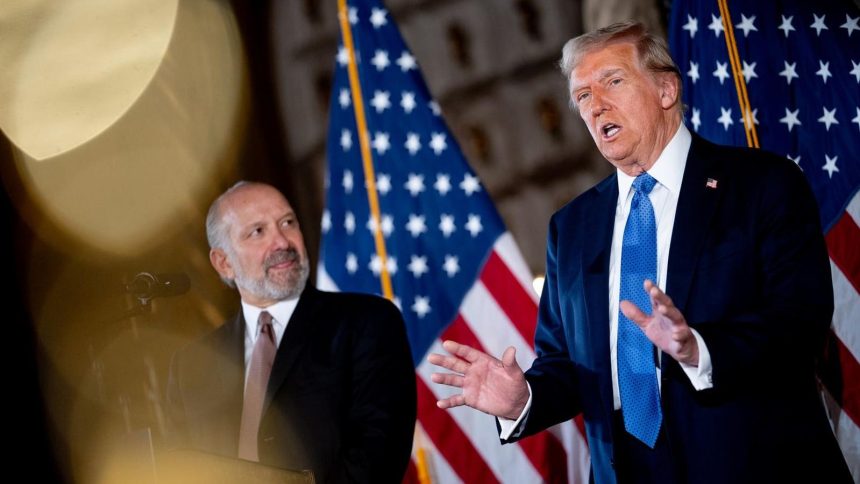President-elect Donald Trump has reignited discussions about privatizing the United States Postal Service (USPS), a prospect he has entertained since his first term. Trump’s renewed interest, confirmed in a recent press conference, stems from concerns over the agency’s financial performance and perceived inefficiencies. He suggested that privatization is “not the worst idea,” indicating that his team, including members of his “Department of Government Efficiency” led by Elon Musk and Vivek Ramaswamy, is actively exploring the possibility. This aligns with previous reports of Trump discussing the matter with Commerce Secretary nominee Howard Lutnick and considering canceling contracts for a new fleet of electric mail trucks. Musk, a vocal proponent of privatization, further fueled speculation by publicly endorsing the idea on X (formerly Twitter), suggesting allowing Americans to opt out of physical mail delivery.
The USPS, while part of the federal government, operates largely independently and is primarily self-funded. Its core mission, established through a universal service obligation, mandates providing affordable and consistent mail service across the country, including remote and less profitable areas. This mandate has been a central point of contention for privatization advocates who argue it contributes to the agency’s financial struggles. Trump’s previous attempts to privatize the USPS during his first term were met with bipartisan opposition, particularly from lawmakers representing rural districts heavily reliant on the agency’s universal service. However, with renewed calls for reform from within his own party, the political landscape surrounding the issue appears to be shifting.
The feasibility and potential implications of privatizing the USPS are complex. While Trump has considerable influence, fully privatizing the agency or altering its universal service obligation would likely require Congressional approval. It remains unclear whether sufficient Republican support exists for such a drastic measure. Some Republicans, echoing Trump’s criticisms of the USPS’s management, have pointed to the agency’s financial losses as justification for exploring private sector involvement. Rep. Marjorie Taylor Greene, for example, has criticized the agency’s “poor management,” while Rep. James Comer has suggested certain aspects of USPS operations would be better handled by the private sector. This emerging support from within the GOP could potentially embolden a renewed push for privatization.
Despite the uncertainty surrounding Congressional support, Trump may possess alternative avenues to influence the USPS. He retains the power to appoint members to the agency’s board of governors, which oversees its operations. With several vacancies on the board, Trump could potentially secure a majority of appointees sympathetic to his vision, even without full privatization. Furthermore, the USPS relies on federal loans, which Trump could leverage to pressure the agency into adopting his desired reforms. The Postmaster General, Louis DeJoy, a Trump appointee initially seen as an ally, has reportedly fallen out of favor with the former president due to his support for mail-in voting. This strained relationship further complicates the dynamics surrounding potential USPS reforms.
The potential privatization of the USPS carries significant implications for mail service and the broader economy. Critics argue that prioritizing profits over universal service could lead to higher prices, reduced service quality, and diminished access in less profitable areas. This could involve fewer delivery days, longer delivery times, and potential service disruptions, particularly in rural communities. The impact would also ripple through the e-commerce sector, as companies like Amazon heavily rely on USPS for “last-mile” delivery and broader shipping logistics. The potential disruption to established supply chains and increased costs for consumers and businesses represent significant concerns for opponents of privatization.
Proponents of privatization, however, contend that it could address the USPS’s long-standing financial challenges. By allowing the agency to access private capital and adjust pricing more freely, they argue it could become more financially sustainable and innovative. They suggest that privatization would free the USPS from bureaucratic constraints and allow for greater investment in technology and modernization, ultimately leading to a more efficient and competitive service. Despite these arguments, the potential negative consequences, particularly for rural communities and vulnerable populations reliant on affordable and accessible mail service, remain a central point of opposition. The debate over the USPS’s future will likely continue to be a contentious one, balancing the need for financial stability with the agency’s crucial role in providing a universal service.



